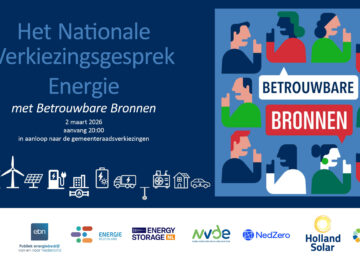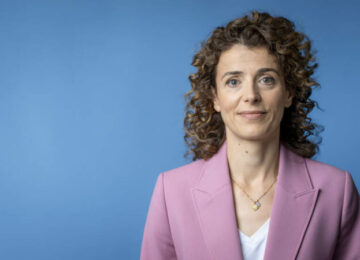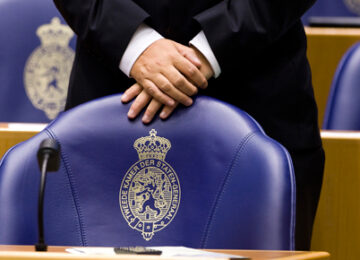Networking meeting underscores urgency and cooperation around energy storage and permits
On June 12, Energy Storage NL and the Municipality of Breda organized a well-attended network meeting on'Locations and permits for energy storage'. The large turnout made it clear that this topic is high on the agenda of both governments and market players. The meeting in Breda provided space for open dialogue, practical experiences and exploration of common solutions.
The morning began with a brief update from Energy Storage NL. Participation in the RegioTeam was shared with attendees and what this can mean for members. Furthermore, an update is expected next week on the ongoing investigation into the possibility of introducing an input tariff in the Netherlands from the ACM.
On behalf of the Municipality of Breda, Climate and Energy Alderman Peter Bakker and Grid Capacity and Innovation Advisor Jeroen Koijen took the floor. They first emphasized the indispensability of energy storage for the success of the energy transition. As a larger municipality, Breda has the advantage that they can deploy relatively large capacity on this theme, something that is often a challenge in smaller municipalities. This is precisely why knowledge sharing and cooperation between municipalities is very important. Nevertheless, the large volumes of permit applications remain a problem, with projects that fit into the environmental plan being given preference.
A valuable contribution came from Paul Geluk and Tamara Adriaanse of SemperPower / Return. They shared their experiences with two successful permit projects and gave practical tips on how developers can work more effectively with municipalities. One of their key pieces of advice was to actively include municipalities in the process: explain what you are doing, why you are doing it and what the impact is. Through transparency and early coordination, there is more mutual understanding, which can significantly speed up the permitting process.
Next, Eric Woittiez of Netbeheer Nederland gave an insight into a possible change of course for network operators. He said he wanted to move toward a more proactive system, in which network operators would indicate the flex needs per survey and would no longer have to search for flex to solve local congestion, but rather that flex would search for congestion so that it could be designated as a congestion mitigator. While this is still under development and nothing is set in stone yet, it marks an important step toward strategic cooperation with market participants and governments.
The concluding panel discussion with Piet Ackermans (RES West Brabant), Daan Beudeker (Windunie) and Eric Woittiez, among others, provided space for an open discussion about roles, responsibilities and bottlenecks. A striking point that emerged was the mutual dependency between municipalities and grid operators: developers are not promised grid capacity until a permit is in place, while municipalities often do not want to issue a permit until it is clear that grid connection is possible. This chicken-and-egg situation highlights the importance of structural consultation and mutual understanding. A valuable tip from Piet Ackermans is to enter into an intake interview with the municipality. This should facilitate the permit application.
The meeting provided valuable insights and brought parties closer together. It was an inspiring morning that made it clear that cooperation, transparency and joint direction are essential to accelerate energy storage in the Netherlands.
Presentations from the networking event can be downloaded from the knowledge base.





